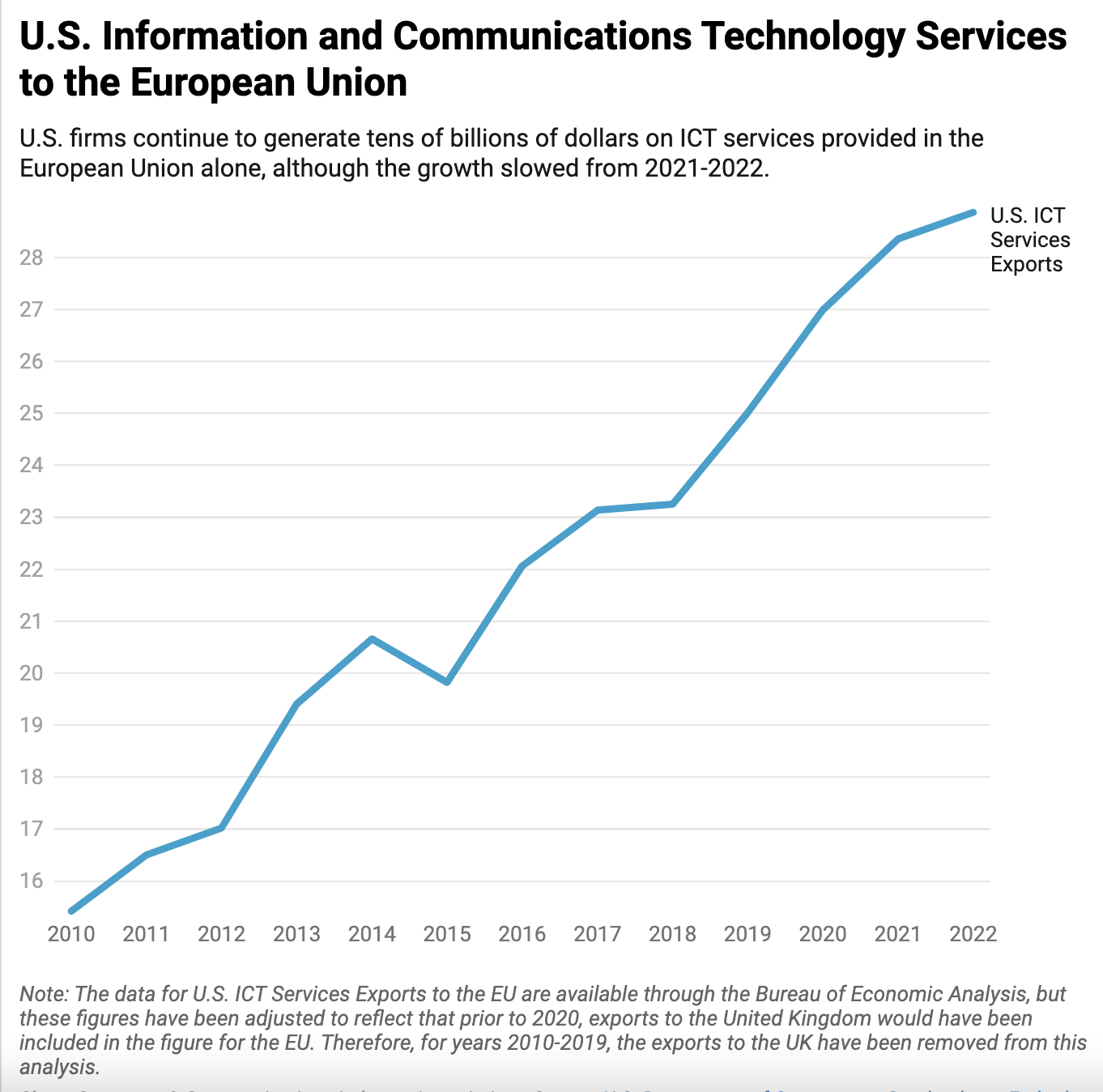The Digital Services Balancing Act: Three Questions for EU Lawmakers

The past year has proven how valuable digital services are for Europeans. Children have been able to study online, social networks have kept families connected, people have worked remotely and consumers have streamed exciting new content like Squid Game.
Enter the Digital Services Act (DSA), the European Union’s (EU) attempted rebalancing act of digital platforms and services in Europe. The DSA is designed to protect consumers from viewing, buying, or engaging with illegal products and content. It develops a single framework to hold digital service providers accountable for any contribution to or sharing of illicit content.
As European policymakers seek to finalise the DSA they should consider three key questions:
Will the DSA be a net plus for consumers?
Although online services offer numerous economic and social benefits, technology can be misused. Digital service providers have created solutions in response to such misuse. Automated tools can help detect illegal content, products, and conduct, proactively flagging what needs to be removed. However, such technology has limitations as it cannot assess the context of an online activity. A possible DSA obligation to keep illegal content offline, known as “stay-down”, could lead to an uncontrolled use of monitoring technology, which risks the censoring of free speech and removal of legal products. As a result, European citizens could be restricted in expressing themselves online, and limited in what products they can buy.
Will the DSA provide clear rules for companies?
The DSA will impose new obligations on tens of thousands of companies in Europe. Hence, policy makers should ensure that all these companies, big and small, have a fair chance at actually complying with the rules. This can be done by keeping the DSA as a horizontal framework that sets general standards for all digital services. Sector-specific measures can then be built on top of the DSA foundation. That would however require policy makers to acknowledge that the DSA can’t be everything to everybody
The “country of origin” principle, as set in the existing e-Commerce Directive, should be maintained. Eliminating it would severely harm small businesses’ capacities to offer services in all EU countries. The DSA should, like its predecessor, provide an EU-wide set of standards, as opposed to the “country of destination” approach. Having one single set of rules, rather than 27 national rules and enforcers, is especially crucial for the small and medium sized companies which represent 92% of Europe’s online platforms. Keeping the “country of origin” principle means strengthening the EU economy and competitiveness vis a vis other global players, while moving to a form of “country of destination” would harm the EU Single Market.
Will the DSA support economic growth in Europe?
The DSA will heavily impact European companies’ ability to take their business online. Some European policymakers are threatening to severely limit or ban online advertising. This would in particular limit small companies’ opportunity to connect with new customers and thereby quickly and efficiently grow their business. The last few months have shown how crucial it is for companies to be online to reach new customers.
Before developing rules that limit advertising, policymakers must properly assess the advertising landscape and consider the impact that targeted advertising has on small companies. This includes acknowledging that online ads are an essential source of income for key industries, like European news and media.
In short, the DSA must be the balancing act that creates a better functioning EU digital single market, provides clarity on everyone’s responsibilities, and safeguards online rights. European citizens and businesses should continue to enjoy all the economic and social benefits of digital services.








